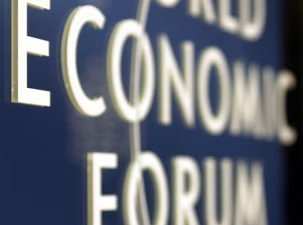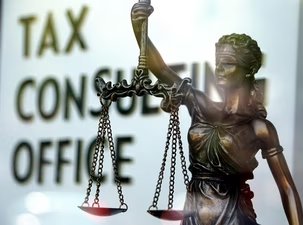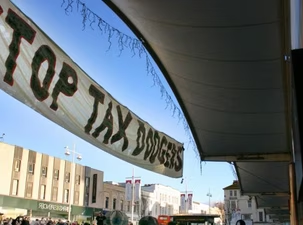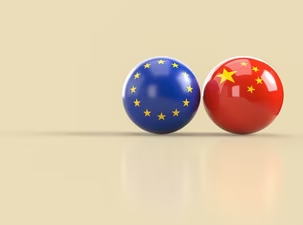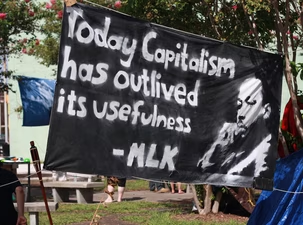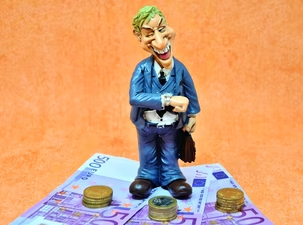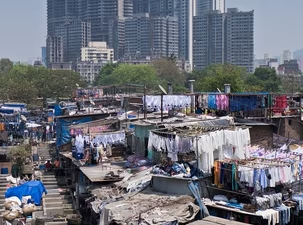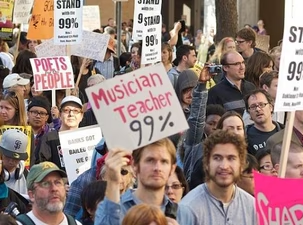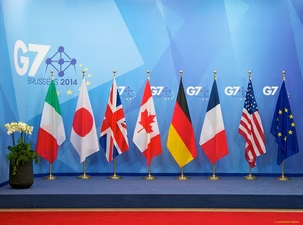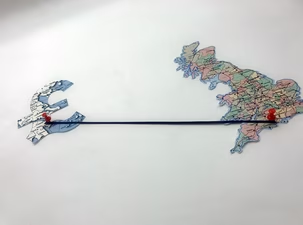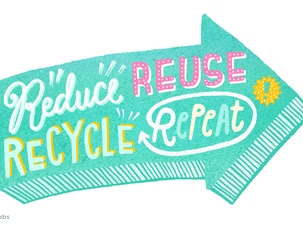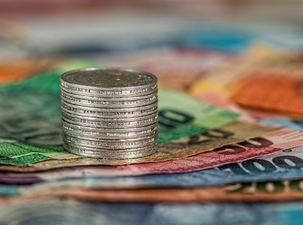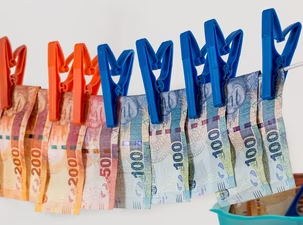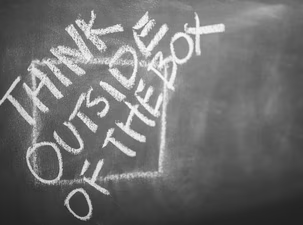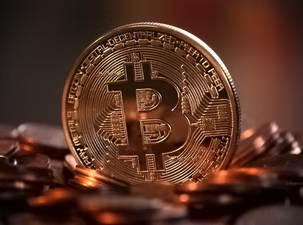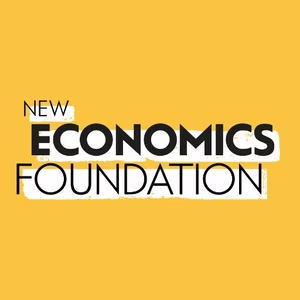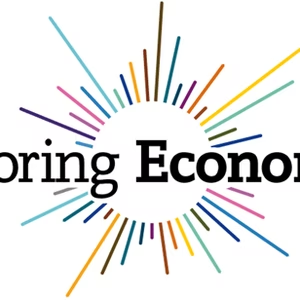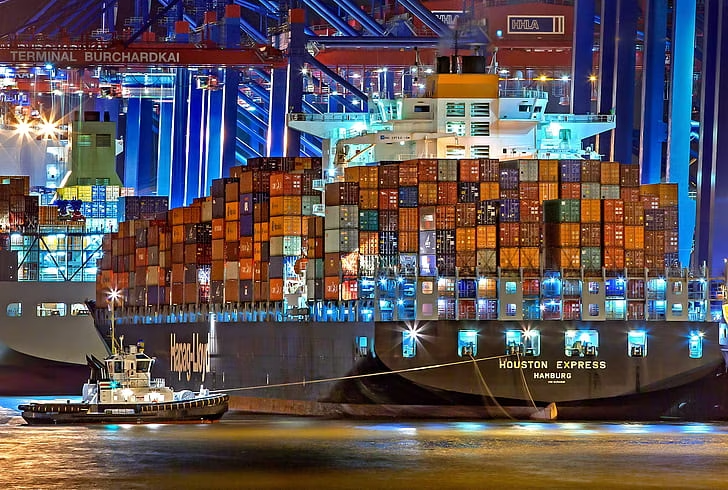
Economy
Comprehensive guide to the global economy and key issues such as capitalism, inequality, financial crises, bank scandals, austerity, free trade deals, and the need for reform.
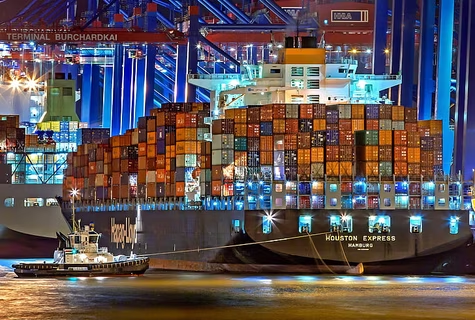
➡️ GLOBAL ECONOMICS - Capitalism, Broken Financial Systems & Key Players
This unique guide to all things economy explores the top issues with today's profit-hungry financial systems and exposes the dangers of our capitalist society. We offer viable solutions and alternatives that shift the focus from corporate profits to societal benefits and a greener world.
Jump straight to our resources on ➡️ the Economy
Explore our comprehensive guides on -
-
Capitalist Economy - Key Issues
-
Key Players in the Global Economy
-
Alternative Economies
-
The Circular Economy
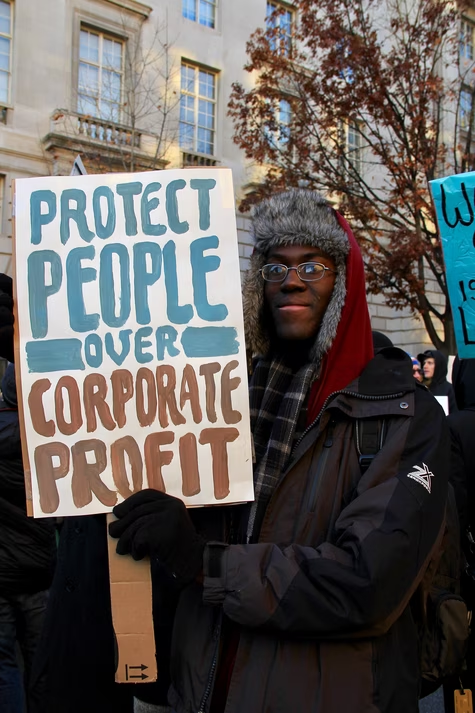
Inequality is engrained in our economies, and the coronavirus pandemic further widened the gap. The top 1% seized 38% of global wealth growth since the mid-1990s, while the bottom 50% gained only 2%. Inequality is deadly. Hunger and poor access to healthcare and education leads to the deaths of thousands every day as they are denied their basic rights.
The capitalistic system feeds gender inequality, racism, and the further marginalisation of vulnerable groups. How have we allowed 252 men to accumulate more wealth than all 1 billion women and girls in Africa, Latin America, and the Caribbean combined?
This extreme concentration of wealth and power is bad for our planet too. Rich countries are failing to address their part in creating the climate crisis, which is disproportionately affecting the global South. The world's richest 1% account for more carbon emissions than poorest 66%.
"A nation will not survive morally or economically when so few have so much, and so many have so little," - Bernie Sanders.
We invite German speakers to visit our partner site, Bessere Welt Info and the category Wirtschaft for 5,700 links to the world of economics from a European perspective.
Key Issues in Global Economics
Here, you can find a wealth of information on how economics affects our everyday lives and the issues created when it is poorly managed. Learn how free trade agreements such as TTIP, Mercosur, and RCEP fuel economic growth but also result in job losses, lack of regulations and workers' rights, a heavy environmental toll, and act as a driver of consumption.
Poor economic management can also lead to recessions, financial crises, and bank crashes. Learn more about the financial and debt crises in the UK, the USA, and Europe, as well as the various Occupy movements where protesters sought to advance social and economic justice and for bankers and politicians to act in a more moral and ethical way.
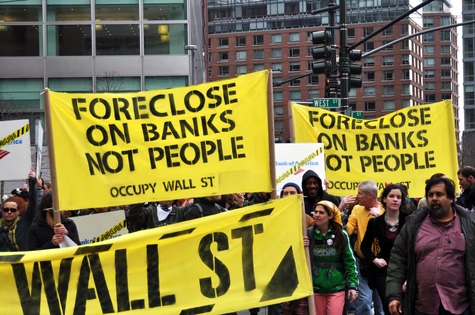
Explore other issues, such as increasing automation, the rise of artificial intelligence, and their implications for employment. We also delve deep into the impact of rising military spending at the social expense of citizens, as well as campaigns such as GCOMS fighting against this siphoning of taxpayer's money.
Developing countries are particularly vulnerable to corruption, greed, and lack of economic stability. Struggling with high levels of inflation, debt, poverty, and the impact of climate change, poorer countries can fall into further crises and need assistance in the form of local economic development, microfinance, investment, and foreign aid.
Capitalism - Pathway to Wealth or Disparity?
Capitalism is the economic system whereby societies' means of production are owned by private organisations and individuals. Since its early roots, capitalism has hurt local economies and led to the spread of colonialism, slavery, and imperialism. Initially praised for driving innovation, wealth, and prosperity, it soon became clear that the benefits of capitalism are rarely equitably distributed. As such, citizens, particularly younger generations, are growing increasingly disillusioned with the system.
It is also a key driver of consumption. Economists have understood the detrimental environmental effects for decades. This profit-based system is a massive creator of waste and emissions, and it relies heavily on fossil fuels.
Capitalism also fuels war. The weapons industry and arms trade worsen armed conflicts as private weapons contractors and stockholders seek only to line their own pockets. War means profit. The Russian invasion of Ukraine has allowed weapons prices to soar as private brokers who secure arms deals for Ukraine earn 2-4 times more than usual. BAE Systems share prices have risen by 80% since the start of the war, and they have seen a 9.5% rise in annual earnings.
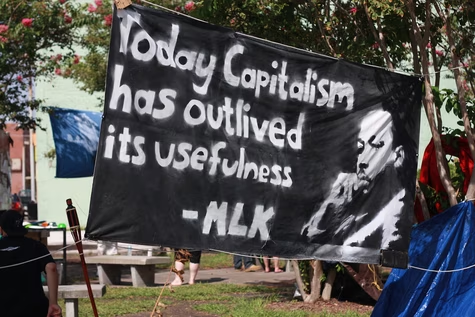
Explore past financial crises, banking scandals, and soaring financial inequality, now commonplace across the planet. Of all the G7 nations, the U.S. has the highest level of income inequality, with the wealth gap more than doubling between 1989 and 2016 alone. The U.S. is also home to the majority of the 1% club and has the world's largest military budget.
Learn how tax avoidance and tax havens cost developing countries $100 billion annually. The world's elite is estimated to hold up to $32 trillion in offshore havens. These unprecedented levels of tax evasion are the leading cause of austerity policies. Find further information on tax dodging in the UK and the U.S., as well as information on tax cuts for the rich and governmental failures to apply a windfall tax on enormous oil and gas profits.
Austerity measures, such as those witnessed in the UK, punish ordinary citizens by raising taxes and cutting public spending. Journalists, whistleblowers, and financial crime experts work hard to expose tax leaks such as the Pandora Papers, the Panama Papers, and the FinCEN files. World leaders, officials, and banking institutions have all been implicated.
Human rights defenders have long claimed capitalism to be inherently exploitative and the cause of numerous rights issues. Due to the profit-driven nature of this economy, countries experience periods of stagnant wage growth while company profits soar. The reality of low pay Britain is a classic example of this, and unions in the UK are fighting back with a host of national strikes and industrial action from NHS staff, rail workers, and teachers.
In developing nations, capitalism promotes the use of dangerous and exploitative sweatshops and child labour. Concepts such as fast fashion are driven by materialism, high volume, and low prices. Corporate greenwashing techniques are then used to gloss over the high environmental and human costs of such systems and label them as sustainable.

How Broken is the Global Financial System?
The global financial system comprises banks, insurance companies, stock exchanges, the International Monetary Fund, government treasuries, and the World Bank. It follows a set of rules and practices for borrowers and lenders to use.
Since the invention of banking, control has become massively centralised, creating vast amounts of wealth for those connected to the financial system. It has also contributed to massive inequality and many of the global challenges and risks that we face today.
We explore solutions and reforms such as improved regulation, a Robin Hood tax, cooperative banking, and curbing the gigantic banking bonus culture.
Learn about the main players such as Goldman Sachs, JP Morgan, the Federal Reserve and other central banks, hedge funds, and the regulators and ‘experts’ calling the shots.
We investigate banks as enablers of corruption and fraud, including key issues such as privatising profits, the finance lobby, the shadow banking system, commodity market manipulation, the privatisation of public assets, insider trading, and the debate on whether these bankers are simply too big to jail.
Find an extensive guide to various examples of banking scandals and financial crime, including information on the devastating 2008 financial crisis, the Credit Suisse crisis, the Silicon Valley Bank collapse, and the next financial crisis in the making.
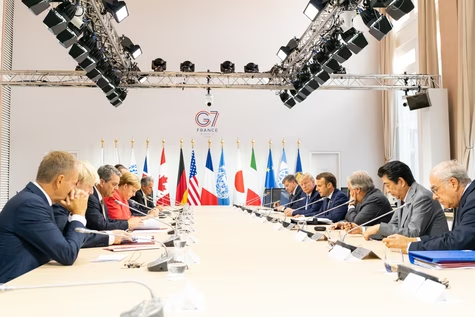
Key Actors in the Global Economy - Who Runs the World?
Have you ever wondered who pulls the strings in shaping the global economy? Explore an in-depth analysis of the G7 and G20 – made up of the planet's wealthiest countries and responsible for controlling international financial stability, trade, securing growth, and their own prosperity.
You can follow the actions of the World Bank, whose goals are to reduce poverty and improve living standards but are widely criticised for promoting deregulation, inflation, dependency, and harming development instead.
We also feature critical analysis of the IMF, WTO, and OECD, who all play significant roles in controlling and regulating the economy and our social well-being. Find extensive information on the World Economic Forum, the elitist gathering for the rich and powerful, and the OPEC, who influence the global oil market and hold great weight regarding international relations, geopolitics, and national economics.
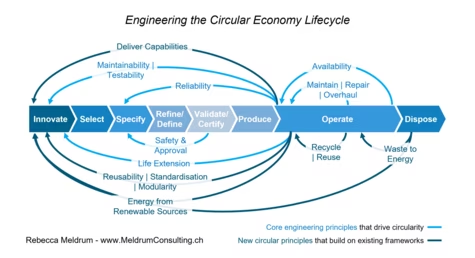
The Alternative Economy - Redefining Prosperity
Better World Info advocates for a world where an alternative economy thrives, fuels sustainability, inclusivity, and greater equality. Explore the latest developments in the circular economy, the doughnut economy, and the shift towards a green economy and degrowth. Find information on ethical investing and banking, green careers, cooperatives, and the role of women in the economy.
Proposals such as the global minimum corporate tax rate have been implemented to reign in multinationals and tackle corporate tax avoidance, and concepts such as Universal Basic Income are gaining much-needed attention.
We feature a special category on cryptocurrency, the decentralised digital currency currently shaking up traditional monetary systems. It is an exciting new way to purchase goods and invest, but it is heavily criticised for its speculative nature, environmental impact, and links to fraud and organised crime.
Alternative lifestyles go hand in hand with the principles of a greener economy. Find out how to become an ethical consumer, begin on the road to a simpler life, learn about anti-consumerism and minimalism, and see how many people are already living this way.
Living more sustainably has been linked to increased happiness and more free time to do the things you really enjoy. The movement against corruption, greed, inequality, and power is growing every day - see how you can get involved by checking out our blog, ‘Less is More’.
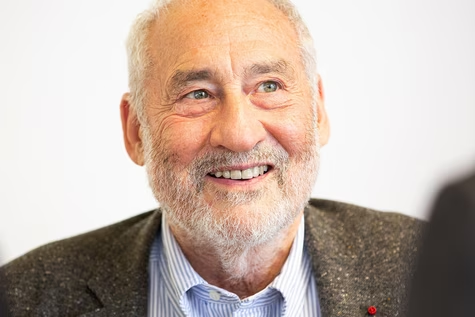
Inspiring Economists - Redefining Economic Thinking
Explore our top selection of exemplary economists and economic thinkers whose contributions to finance have created positive social change. Learn about Nobel Prize winner Joseph Stiglitz, who fights against corporate tax avoidance and inequality by calling for reforms and a global minimum corporate tax.
Find an excellent guide to the work of Bangladesh social entrepreneur Muhammad Yunus, whose belief that credit is a fundamental human right and concept of microcredit has helped thousands of low-income people start their own businesses.
Standing up for labour rights and the reduction of economic inequality in the U.S., Robert Reich, the former US secretary of labour, pushed for higher wages, greater investment in workers, and job creation.
Discover more on the work of Austrian Right Livelihood Award winner Leopold Kohr, who challenged centralised financial structures and advocated for the localisation of power and problem solving through his concept of 'Small is Beautiful'.
By highlighting and celebrating the work of these progressive thinkers, reform pioneers, social entrepreneurs, and financial experts thinking outside the box, we aim to inspire hope for a more just economic system where social uplift, not profit for the few, is the primary motivation.
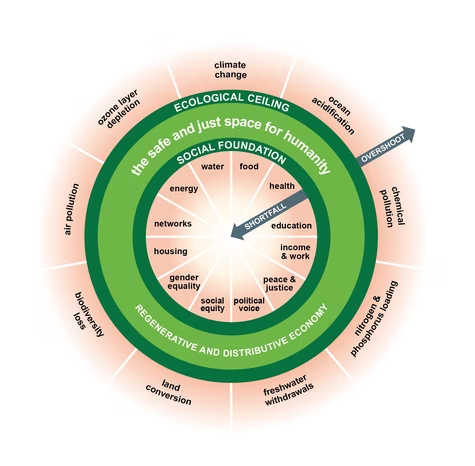
Economic Reform for a Better World
Current financial systems promote greed and materialism. They are unsustainable and are driving inequality and marginalisation. Global financial literacy remains low, with just one in three people understanding basic financial concepts. This lack of knowledge makes it difficult for people to make informed choices, build wealth, and control their own finances. Financial literacy education is essential for empowering citizens and enabling greater social mobility.
Financial services are the least trusted sector in the world. Riddled with scandals, corruption, failures, and risky decision-making, it is no surprise that this lack of trust is a major barrier to economic growth and stability. Such concentrated levels of power breed mistrust, high unemployment, political unrest, and recessions.
Current systems mean that one banking failure can decimate the entire system. Why are we operating on a system with such huge levels of risk and fragility? Why are banks seemingly immune to punishment and reprobation?
There is a great need to decentralise the financial system, level the balance of power, and enforce stricter regulations. We must demand the end of impunity, support local cooperatives, and embrace a more circular, sustainable, and just economy.
“Anyone who believes in indefinite growth on a physically finite planet is either mad, or an economist,” Sir David Attenborough.
Better World Info is an open platform – We invite experts, NGOs, campaigners, and activists to contribute their knowledge and top resources! We are a constantly expanding, work-in-progress, committed to spreading reliable, critical, and investigative resources to help create an informed, knowledgeable, and curious world.
Author: Rachael Mellor, 24.07.23 (Updated 09.04.25) licensed under CC BY-SA 4.0
For further reading on Economics see below ⬇️
